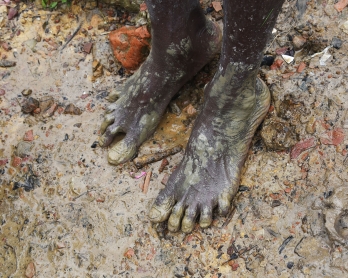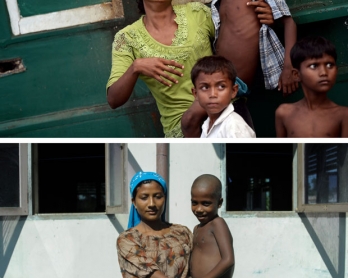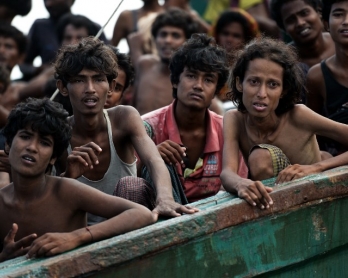They were like ghosts
Cox’s Bazar, Bangladesh -- Once, during the night, I was waiting for them on the beach, wanting to photograph them as they disembarked from the boats. They walked on the sand in silence, utterly exhausted, paying no attention to me. They looked like ghosts, coming onto land from the sea. Out of the dark, one little boy walked toward me, attracted by the light of my phone. He stopped in front of me, no expression on his face, holding his head in his hands. He seemed completely lost, not sure what to do next.
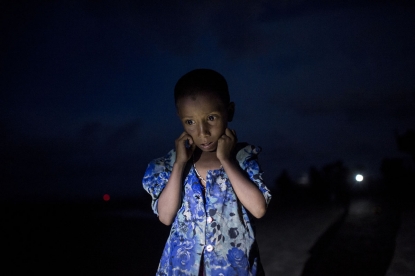 (AFP / Fred Dufour)
(AFP / Fred Dufour)I specifically did not look at any photo coverage of the Rohingya refugee crisis before arriving for the assignment in Bangladesh. The worst thing for a photographer is to try and capture the picture that you have in your mind -- and miss the things happening all around you. I decided to see once I was on the spot.
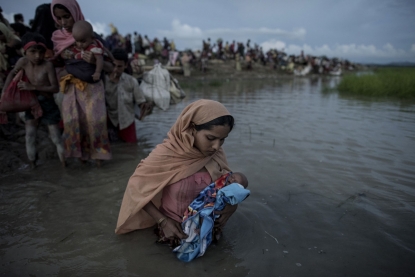 Crossing the Naf river on October 9, 2017.
(AFP / Fred Dufour)
Crossing the Naf river on October 9, 2017.
(AFP / Fred Dufour)One of the things that struck me most was how exhausted and shocked they all were. From the beginning, none of them seemed to care at all about me being there, snapping away pictures. They seemed so much in shock that they didn’t even see me. They seemed to be on automatic, in a desperate mode. Like ghosts on the beach.
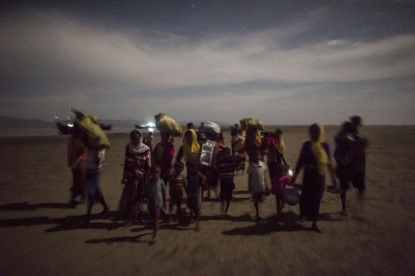 September 29, 2017.
(AFP / Fred Dufour)
September 29, 2017.
(AFP / Fred Dufour)I volunteered to go on this mission. I love covering the human condition and am fascinated by how people fight for themselves in times of crisis.
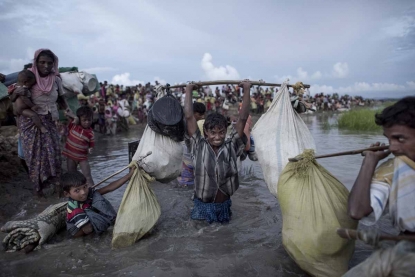 October 9, 2017.
(AFP / Fred Dufour)
October 9, 2017.
(AFP / Fred Dufour)The enormity and horror of the situation hit me as soon as I got to Cox’s Bazaar near the Myanmar border. You’re a human being and you can’t help but be affected by the misery you see. But I had a job to do and so I tried to keep that in mind as much as possible as I worked. It was very difficult.
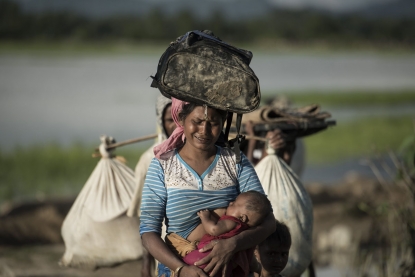 October 9, 2017. (AFP / Fred Dufour)
October 9, 2017. (AFP / Fred Dufour)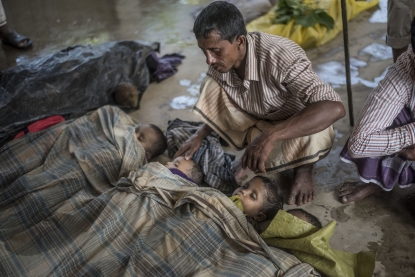 A Rohingya man mourns over the bodies of his three children who died while crossing the Naf river. September 29, 2017.
(AFP / Fred Dufour)
A Rohingya man mourns over the bodies of his three children who died while crossing the Naf river. September 29, 2017.
(AFP / Fred Dufour)
It’s hard to stay stone faced when you have bodies of five dead kids in front of you. You can’t help but think about your kids. Most of the time, I’m not prepared for the rush of emotion. I get as much information as I can when I get to a spot and then I try and manage the emotions in my mind.
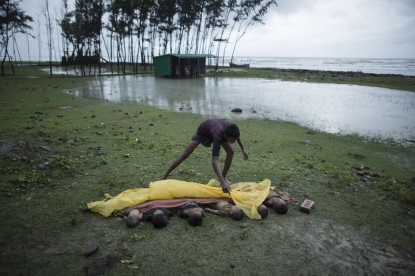 A man covers the bodies of six children who died while crossing the Naf river. September 28, 2017.
(AFP / Fred Dufour)
A man covers the bodies of six children who died while crossing the Naf river. September 28, 2017.
(AFP / Fred Dufour)Stay focused on the job, how best to shoot this, keep good distance from the bodies. Sometimes I kept my camera in front of my face a bit longer than need be. It hid the tears well. “Stay focused, work, work, work,” I would repeat to myself. “Don’t get overcome by emotion.”
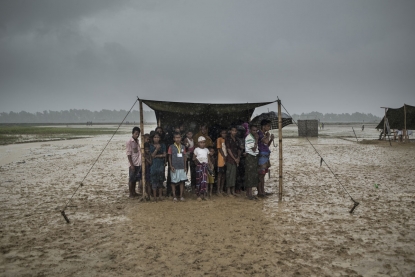 Waiting for food aid, October 6, 2017.
(AFP / Fred Dufour)
Waiting for food aid, October 6, 2017.
(AFP / Fred Dufour)I made sure to work excruciatingly long hours. I guess it was my small way of making sure that I was also suffering a bit. And when I was tired, I didn’t have the energy to think about all the misery around me. Every night when I would return to my hotel I would have to have a drink.
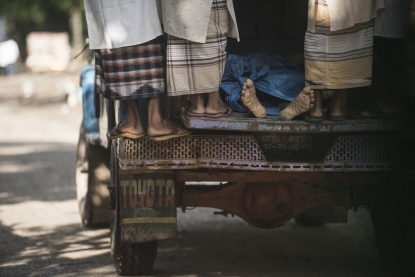 Men carry the body of a Rohingya refugee after a boat capsized near Teknaf on October 9, 2017, killing at least 12 people, most of them children.
(AFP / Fred Dufour)
Men carry the body of a Rohingya refugee after a boat capsized near Teknaf on October 9, 2017, killing at least 12 people, most of them children.
(AFP / Fred Dufour)I kept a distance with these people, especially the ones who were crying over the loss of a loved one. They may not have been paying any attention to me, but out of respect for them I refused to come up to them with a wide-angle 24 mm lens. I also avoided photographing those who looked me directly in the eye. The people who really stood out to me where the ones with the empty look in their eyes…







